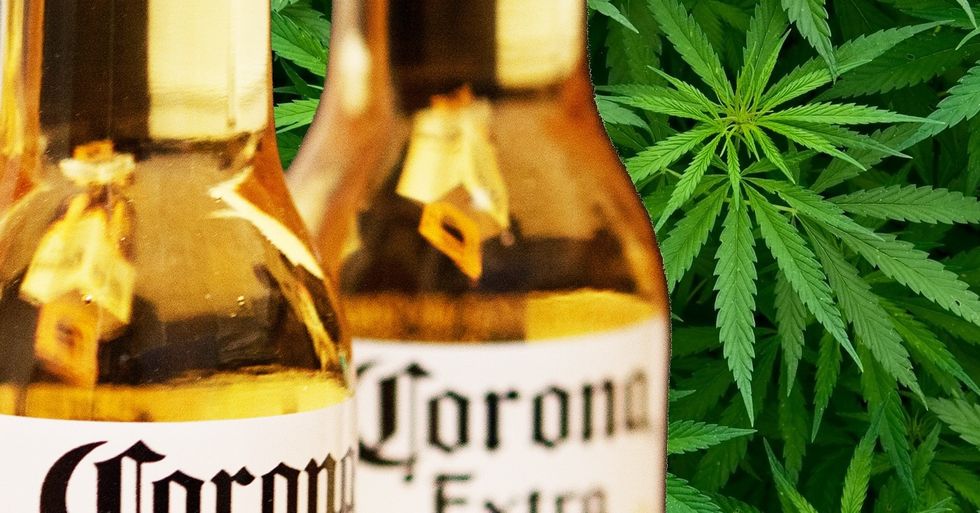According to an article written on March 26th by Manisha Krishnan, senior writer for VICE, three experts revealed that:
"Shutting down liquor stores would create another public health crisis because it would send people addicted to alcohol into withdrawal, further taxing healthcare resources. One doctor said there would also be social consequences to cutting off alcohol access for people who aren't necessarily dependent on booze but use it to relax or cope with stress."
In the same article, an expert interviewed – Michelle Jordan, executive director of Shelter House Thunder Bay –said that stopping the sale of booze would not only put additional strains on hospitals but also increase crime if people become desperate for alcohol," as we've seen before in the early 1900s with the National Prohibition Act.
This act, also known as the Volstead Act, having been championed by Representative Andrew Volstead of Minnesota, was put forth by Congress in 1919.
As stated in an article published by A&E's History.com editors,
"The movement reached its apex in 1919 when Congress ratified the 18th Amendment, prohibiting the manufacture, transportation and sale of intoxicating liquors. Prohibition proved difficult to enforce and failed to have the intended effect of eliminating crime and other social problems–to the contrary, it led to a rise in organized crime, as the bootlegging of alcohol became an ever-more lucrative operation. In 1933, widespread public disillusionment led Congress to ratify the 21st Amendment, which repealed Prohibition."
In addition, Jordan claims that about 1 percent of Canadians suffer from severe alcohol disorder; 19 percent of Canadians 12 and older (5.8 million people) qualified as heavy drinkers in 2016. Alcohol withdrawal symptoms can include tremors, fevers, seizures, anxiety, and in some cases cardiac collapse.
"Ultimately, they can die," said Michelle Jordan.
In another piece by Manisha Krishnan written in 2016, she states that "hand sanitizer, mouthwash, and rubbing alcohol are cheap, easy to obtain and get a person drunk very quickly," leaving people with the option to get "wasted off mouthwash and rubbing alcohol; and it's killing them."
She adds that harm reduction agencies have resorted to "giving chronic alcoholics beer and wine to stop them from drinking poison."
In an article, he wrote on March 28th, Paul Sawers, staff writer for venturebeat.com says that "with social-distancing and self-isolation widely acknowledged as the best ways to counter the spread of COVID-19, demand for goods such as cannabis, alcohol, and even sex tech products are on the upswing."
He acknowledges that alcohol consumption has in fact generally decreased in many markets throughout the world and that the outbreak could be a "veritable boon" for the cannabis industry.
"Drinking is where you'd expect most people to turn first," Sawers argues. "But drinking was already on the way out before COVID-19 — eight out of 10 adult drinkers in 2019 stated that they're looking to moderate or reduce their alcohol consumption. With so many health-conscious consumers in the market today, vices that are 'better for you' are performing extremely well."
As we progress through this new change in reality, people misconstrue which businesses are truly essential to the publics' need. California eased their restrictions on alcohol and marijuana sales amid the pandemic and coronavirus hoarders were said to "love hoarding liquor, marijuana, and guns" in an LA Times article written by Louis Sahagun and Anita Chabria.
To prevent additional strain on hospitals and even crime, states with strict restrictions may want to re-evaluate their alcohol and marijuana laws to help citizens to practice social distancing from their homes.
- Like It or Not, Liquor and Weed Are Essential For a Lot of People - Vice ›
- Prohibition - Definition, Amendment & Era - HISTORY ›
- How coronavirus is boosting booze, weed, and other vice industries ... ›
- The People Giving Alcoholics Beer to Get Them to Stop Drinking ... ›
- Coronavirus ›
- Situation Summary | CDC ›
- Coronavirus ›
- Coronavirus Disease 2019 (COVID-19) | CDC ›



 Photo by
Photo by  Photo by
Photo by  Photo by
Photo by 














